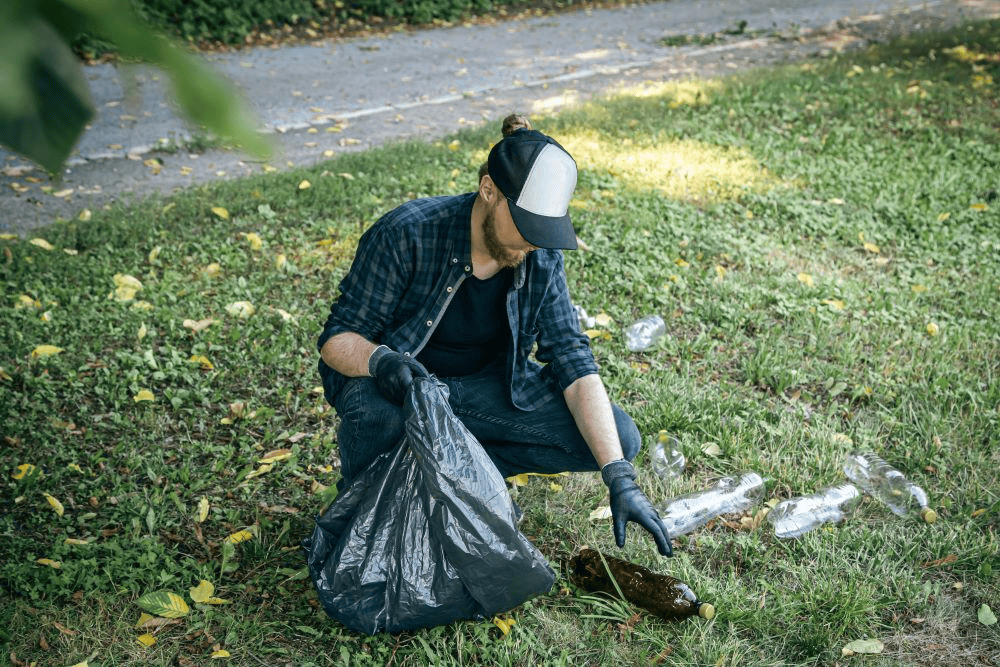
Living in a beautiful state like Nevada often means enjoying stunning landscapes, but it also means dealing with the occasional eyesore of littering. It’s frustrating to find someone else’s trash strewn across your property, and you might wonder what legal actions you can take.
Can you sue someone for littering on your property? Moreover, does intentional littering have any results? If you’re sick of littered roadways know that they can have subsequent convictions if done correctly. In some cases, you might even get maximum penalty against the guilty.
So, let’s explore this issue to shed some light on what you can do if you find yourself in this situation.
Understanding Illegal Dumping and Littering
Before diving into legal actions, it’s essential to understand what constitutes illegal dumping and littering. Illegal act of dumping involves disposing of waste in areas other than designated disposal sites. This can range from small amounts of trash to large quantities of hazardous waste.
Littering, on the other hand, involves leaving trash or yard waste in public spaces or on private property without permission.
When Is Illegal Dumping a Crime vs. a Civil Claim?
Illegal dumping can be both a criminal offense and a civil matter. In cases where large quantities of waste are dumped, especially hazardous materials, it is typically considered a criminal offense. Criminal charges can result in fines, community service, or even jail time, depending on the severity of the offense.
However, when it comes to smaller amounts of littering or dumping, it often falls under civil law. This can include failing to remove litter from public property or not picking after yourself.
These are one of the most common types of offences that people do in such cases. On the other hand, violation of rubbish disposal can have long-term impact, starting from small amount of money to massive punishments.
Legal Actions You Can Take
When dealing with littering on your property, there are several legal actions you can take:
Contact Local Law Enforcement:
Start by contacting your local law enforcement officials to report the incident. They can investigate the matter and take appropriate action against the offender.
File a Civil Lawsuit:
If the littering has caused damage to your property or if you’ve incurred cleanup costs, you can file a civil lawsuit against the person responsible. Your lawyer can help you understand the legal process and seek compensation for damages.
Install Security Cameras:
Installing security cameras on your property can help deter illegal dumping and provide evidence if it occurs. Make sure the cameras cover areas where dumping is most likely to occur.
Can You Sue Someone for Littering on Your Property?
Yes, you can sue someone for littering on your property. When someone intentionally leaves trash on your land without permission, they are violating your property rights. You have the right to take legal action against them to seek compensation for any damages caused.
How to Sue Someone for Littering on Your Property
If you’re considering taking legal action against someone for littering on your property, here are the steps you should take:
- Gather Evidence:
Start by documenting the littering. Take photographs of the dumped waste, noting the date, time, and location. If possible, collect any physical evidence, such as discarded items with identifiable information.
- Notify Authorities:
Report the incident to local law enforcement officials or the environmental protection agency. When police involved they investigate the matter and may issue citations or fines to the offender.
- Contact a Lawyer:
Consider consulting with a lawyer who specializes in environmental state or federal laws or property disputes. They can advise you on your legal rights and options for pursuing a civil lawsuit against the offender.
- File suit:
If informal resolution attempts fail, you may proceed with filing a lawsuit against the person responsible for the littering. Your lawyer will help you prepare the necessary paperwork and represent you in court.
- Seek Damages:
In your lawsuit, you can seek compensation for cleanup costs, property damage, and any other relevant expenses incurred as a result of the littering.
Consequences and Penalties for Littering on Your Property
If someone is found guilty of littering on your property, they may be required to:
- Pay fines to cover cleanup costs.
- Compensate you for any property damage.
- Remove the litter themselves.
- Face legal fees and court costs.
- In extreme cases, they may face criminal charges.
How to Stop Illegal Dumping on Your Property
Preventing illegal dumping on your property requires some effort, but there are steps you can take to deter offenders:
- Install Security Cameras:
Surveillance cameras can deter illegal dumpers and provide evidence if a crime occurs.
- Post Signs:
Clearly mark your property boundaries and post signs warning against illegal dumping.
- Regular Maintenance:
Keep your property clean and well-maintained to discourage littering.
- Report Offenders:
If you witness someone dumping trash on your property, report them to the authorities immediately.
- Educate Your Community:
Raise awareness in your community to promote litter control and the importance of proper waste disposal and the consequences of illegal dumping.
How an Attorney Can Help You in a Littering Case
Dealing with littering on your property can be a challenging and frustrating experience. In such situations, enlisting the help of an attorney can make a significant difference in your ability to protect your rights and seek appropriate recourse. Here’s how an attorney can assist you in a littering case:
- Legal Advice and Guidance: An attorney provides expert advice on your rights as a property owner and the legal options available. They guide you through the process, ensuring you understand your rights and the steps you can take.
- Gathering Evidence: Attorneys assist in collecting crucial evidence such as photographs, witness statements, and documentation of damages. This evidence strengthens your case and supports your claim for compensation.
- Assessing Damages: With the help of an attorney, you can determine the damages caused by the littering and the compensation you’re entitled to. This includes reimbursement for cleanup costs, property damage, and other losses.
- Negotiating with the Opposing Party: Attorneys represent your interests during negotiations, aiming to reach a fair settlement. They handle communication with the opposing party, easing your stress and ensuring your interests are protected.
- Filing a Civil Lawsuit: If negotiations fail, an attorney can file a civil lawsuit on your behalf. They manage all aspects of the litigation process, from drafting legal documents to representing you in court.
- Advocating for Your Rights: Throughout the legal process, an attorney acts as your advocate, fighting to protect your rights. They work tirelessly to hold the responsible party accountable and seek justice and compensation for you.
- Maximizing Compensation: Your lawyer will work to maximize compensation for property damage, cleanup costs, and emotional distress.

Ready to Protect Your Property Rights? BLG is Here to Help!
While it’s frustrating to deal with littering on your property, you do have legal options available to you. By understanding your rights and taking appropriate action, you can hold offenders accountable for their actions and protect your property from further damage.
If you’re unsure about the legal process or need assistance, don’t hesitate to reach out to a qualified attorney for guidance. Together, we can work towards keeping Nevada beautiful and free from littering and illegal dumping.
Are you dealing with the headache of illegal dumping or littering on your property? Don’t let offenders get away with it. BLG is here to help you understand your rights and take legal action. Our experienced attorneys are here to help you understand your rights, navigate the legal process, and seek justice for any damages incurred.
Contact us today for a free consultation.
FAQs
What is it called when someone throws garbage on your property?
It’s called illegal dumping, where someone unlawfully discards waste on private property without permission.
When someone throws out your belongings?
This is also considered illegal dumping, defined as the unauthorized disposal of items, often on someone else’s property, without their consent.
Is littering illegal?
Yes, littering is illegal in most jurisdictions as it involves the improper disposal of waste, which can harm the environment and public health.
What is the legal definition of littering?
Littering is legally defined as the act of improperly disposing of waste in public or private spaces, including dropping trash, dumping waste, or discarding objects in unauthorized areas.




